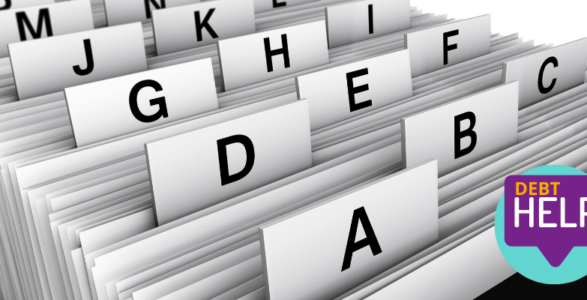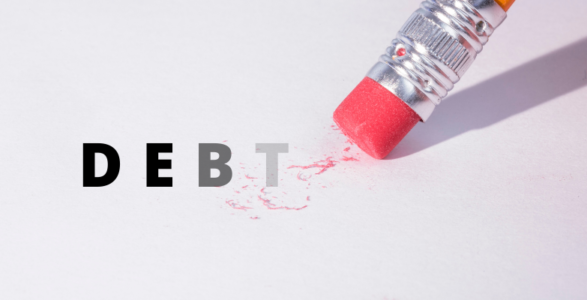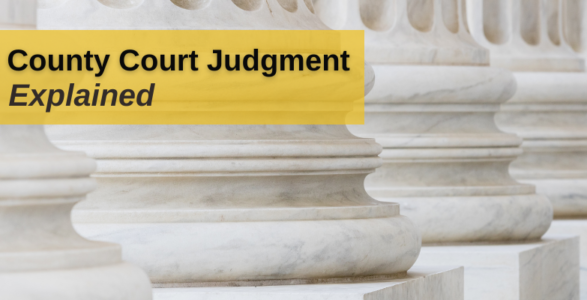Individual Voluntary Arrangements – An Option For Paying Off Your Debt
22 June 2021
What is an Individual Voluntary Arrangement?
An Individual Voluntary Arrangement (IVA) is a legally-binding arrangement with your creditors to pay an agreed amount off your debts over a set period.
This means an IVA is approved by the court and your creditors have to stick to it.
An Individual Voluntary Arrangement (IVA) freezes your debts and allows you to pay them back over a set period.
An IVA can be flexible to suit your needs but it can be expensive and there are risks to consider.
When the arrangement is completed any unpaid parts of the debts that were included in the IVA are written off.
An IVA can be set up in a number of different ways. It can either be a monthly instalment plan over a fixed term (normally five years), or a short term arrangement if you have a lump sum to put forward. Some IVAs are a mixture of both instalments and a lump sum.
Not everyone can get an IVA and there are certain criteria that you need to meet.
IVAs are available in England, Wales and Northern Ireland, but not in Scotland.
Do I Qualify for an IVA?
To qualify for an IVA an individual must have three or more creditors, and debts typically over £15,000.
To qualify for an IVA you must be able to afford to pay something towards your debts but not necessarily the full amount your creditors want. Typically, this is at least £100 a month after you’ve taken care of essential costs, but will vary between IVA providers. Your creditors are unlikely to accept an IVA if your payments are less than that.
You will need to demonstrate that you have a regular and predictable long-term income. This is because an IVA depends on you making monthly repayments usually cover a period of five or six years. If your income changes from month to month, an IVA might not be right for you.
If you have a lump sum to pay towards your debts, you might also qualify for an IVA.
Which Debts Can Be Included in an IVA?
You can use an IVA to help pay off many common debts, including:
- Credit and Store Cards
- Council tax arrears
- Mortgage shortfalls
- Utility Bills
- Unsecured Loans
- HMRC Debt such as Income Tax or NI contributions
- Vehicle and Property Shortfalls
- Overdrafts
- Catalogue debts
- Hire purchase debts
Debts You Cannot Pay Off With An IVA
You cannot use an IVA to pay off debts including:
- Secured Debts & Loans
- Mortgage or Rent Arrears (unless your lender or landlord agrees – which is unlikely)
- CSA arrears
- Unpaid VAT bills
- CSA arrears
- Unpaid VAT bills
- student loans
- magistrates’ court fines
- certain types of car finance
- Social Fund loans
- TV Licence arrears.
How an IVA Works?
Insolvency Practitioner
An IVA can only be set up and managed by a qualified Insolvency Practitioner (IP). An IP is usually an accountant or solicitor who is authorised to set up IVAs.
Before the IVA is set up
The insolvency practitioner should explain all options available to you before you commit to an IVA.
Interim Order
Once an IP has agreed to make an IVA proposal for you, they can apply to the County Court for an ‘interim order’.
- This stops your creditors from starting bankruptcy proceedings against you.
- It also stops any other enforcement action without the court’s permission whilst the interim order is in force.
An IP will work with you to put together a proposal to take to your creditors for approval. The IVA proposal sets out how much is to be paid to your creditors and for how long they will be paid.
IVA Proposal
Your IP will look at your financial situation with you, including your spare monthly income, savings and assets. Assets such as property or a car may be included in the IVA to raise more money to repay your creditors – most IVAs have a special clause about how your home is treated.
Your IP may also suggest that certain assets are not included, for example, a building or van you need to run a business or a car that you need to get to work.
With the help of your IP, you will work out a repayment plan to your creditors. You will need to offer as much as you can afford, otherwise your creditors might not accept the proposal.
Creditors Meeting
The IP sends this proposal to your creditors and arranges a formal meeting with them.
- Creditors vote on whether to accept the IVA.
- Many creditors have signed up to an IVA protocol. The protocol contains guidelines on how an IVA proposal should be drawn up. Creditors are expected to accept a proposal that has been drawn up under the protocol and not ask for unnecessary changes to it.
- The creditors who accept the proposal must together hold at least 75% of the value of your debt. The IVA will then be binding on all the creditors, even those that voted against the proposal.
- Sometimes creditors will ‘haggle’ about the terms of the IVA and ask you to agree to pay more every month, or include assets you do not want to lose. They may ask you to make payments over a longer period. However, your agreement is needed before these changes are made.
Repayments
Your repayment plan, if approved, could be monthly payments, a lump sum or a combination of both.
Any repayments will be paid directly to the insolvency practitioner. They will then distribute the money to your creditors. Some of this will be kept by the insolvency practitioner to pay their fees.
If you are a homeowner, in the second to last year of the IVA, you might be asked to re-mortgage your house and use the extra funds towards repayment. If you do this, the IVA term would then finish a year early or after you have re-mortgaged.
If the payments you make aren’t enough to pay your debts in full by the end of your IVA, you won’t have to pay the rest. The insolvency practitioner should advise you about this.
Pros of an IVA
There are benefits of choosing an IVA:
- An IVA is legally-binding meaning creditors have to respect it – they can’t take any further action against a borrower while repayments are being made, such as applying for a County Court Judgment (CCJ) to be issued.
- An IVA is time limited, so repayments only have to be made for this amount of time. This works well for people who have a budget they believe they can stick to.
- Once the repayment period ends, the debts will be discharged – no more money will be owed to creditors, even if there’s leftover debt.
- IVAs will also be removed from the Individual Insolvency Register three months after the IVA ends.
Cons of IVA
There are risks associated with an IVA:
- If you paid an up-front fee for your IVA and it is not accepted, then you will have lost the fee and may be in a worse position than when you started.
- There can be high costs associated with an IVA, because it has to be set up by a qualified IP. These fees usually include the set-up fee and the handling fee each time there’s a payment.
- If circumstances change (e.g. a decrease in income or increase in expenditure), and repayments are not made, the IVA will fail and could lead to bankruptcy. | If your circumstances change and you can no longer afford the payments, your IVA may end if the IP cannot persuade the creditors to accept a new agreement. | If you do not keep to the terms of the IVA then the IP or your creditors can take further action against you, for example by making you bankrupt.
- If an accountant or solicitor gets an IVA, the agreement might prevent them from continuing to work.
- Using an IVA may also require a personal pension to be used towards the repayments because it counts as income.
- If you own your home, the IP and creditors may ask you to agree to re-mortgage your home as part of the IVA. If you are unable to do this, you may lose your home.
- If you rent your home, check the terms and conditions of your tenancy agreement. It may say that your landlord can end your tenancy if you enter into an IVA.
- The IVA will be recorded on your credit reference file for six years and can affect your ability to get further credit.
- When you set up an IVA, you will need to open a basic bank account which is separate from all your debts. A basic account does not offer any credit facilities, such as an overdraft. Some banks may not allow you to continue to operate a basic bank account whilst you are in an IVA.
The Costs of an IVA
Insolvency Practitioner Fees
There are no professional or legal guidelines on what IPs should charge but fees are in the region of £5,000 on average.
How and when do you have to pay?
Some practitioners will ask you to pay in full before setting up an IVA.
Others will deal with the fees as part of the IVA. The fees will be taken from your monthly debt repayments. When you make your monthly payment into the IVA, a portion of the money will go to pay the insolvency practitioner and the rest will go to the creditors.
What do the fees cover?
The IP has three roles throughout the period of the IVA. They will charge you for each of these roles. These are:
- the IP will advise you on whether an IVA is suitable
- the IP will help you put together a proposal for an IVA, make an application to the court and hold a meeting with your creditors to get agreement on the proposal. By law, this work has to be done by an insolvency practitioner. You cannot do it yourself
- when the court approves the IVA and the creditors agree, the IP will supervise the IVA as it progresses, making sure the creditors get the monthly payments and acting as a go-between for you and the creditors if anything changes.
Make sure you know how much it’s going to cost before asking an insolvency practitioner to act for you.
You should ask a number of insolvency practitioners for quotes or estimates on what fees they will charge you. That way, you can compare costs. Some insolvency practitioners may offer you a free or reduced rate initial meeting to talk about whether an IVA is suitable for you. Ask around to see who offers this service.
Fees when referred for IVA by the court
If the court has referred you to an insolvency practitioner for an IVA during bankruptcy proceedings, you will have to pay a fee of £335 to the insolvency practitioner.
The fee will be taken out of the deposit you paid to the court for your bankruptcy petition.
What Happens if I Cannot Keep Up the IVA Repayments?
If you cannot keep up with the IVA repayments, the insolvency practitioner can cancel your IVA and apply to make you bankrupt.
It’s important to be aware, however, that not all cancelled IVAs lead to bankruptcy – this is purely an option that individual creditors may consider if the IVA fails.
Get Free Advice About Setting Up an IVA
It’s always best to talk things through with an experienced debt adviser before you decide to take out an IVA.
This is because the debt solution that’s best for you depends on your personal circumstances and might not be this one.
Debt advisers can help you make the right decisions so most of your money will go to paying off your debts. This means you could be debt-free sooner than you thought.
How an IVA Affects Your Credit File?
An IVA will remain on your credit report for six years from the date it starts.
Your IP will send a certificate of completion to the Insolvency Service, once your IVA is completed, who will notify credit agencies.
Once the IVA is completed, your details will be removed from the Individual Insolvency Register after three months.
How Will an IVA Affect My Chance of Getting Credit?
If you have an IVA you may find it difficult getting credit in the short term. You may be able to get credit for personal household goods and services.
While an IVA is still active, you will need written permission from the Insolvency Practitioner to borrow more than £500, unless the credit is for utilities like water, electricity or gas.
Having a completed IVA on your credit report does not mean it is impossible to get credit, but it may take time to demonstrate a history of responsible borrowing.
Are Details of IVAs in the Public Record?
Details of IVAs are kept in a public register called the Individual Insolvency Register.
- Your IVA will stay on the register for the length of the IVA.
- It will be removed three months after the IVA has ended.
When you apply for credit, the creditor may check this register.
Car Finance With an IVA
If you have an IVA or had an IVA within the last 6 years you may wonder if you can get car finance.
It will be difficult to get finance from a mainstream dealer, but at Compass Vehicle Services we only lease to customers with bad credit.
Many of our customers have been affected by IVAs.
Applying for Car Finance with an IVA
Under the IVA a car usually comes under ‘essential credit’. This means a vehicle is required to get you to work; without it you could not get to work and thus it is essential for you to earn money to pay off your debt.
If you are in an IVA you need to apply to us as normal, however, at the point of enquiry it is best to mention you are in an IVA, so our advisers can give you further information.
Once you have been approved, quotations for vehicles are then provided, and these will need to be then passed by your IVA practitioner.
Your IVA Practitioner will have the final say on the amount you are able to spend on the lease vehicle per month.
Before you are able to enter into a contract with Compass Vehicle Services, you will need to provide written permission from your IVA practitioner showing they are happy for you to go ahead with the leasing contract.
Compass Vehicle Services Ltd offer:
nationwide car leasing – bad credit car finance – used car deals – personal leasing – business car leasing – best car lease deals – non-status car leasing
Back to all help and advice articles




